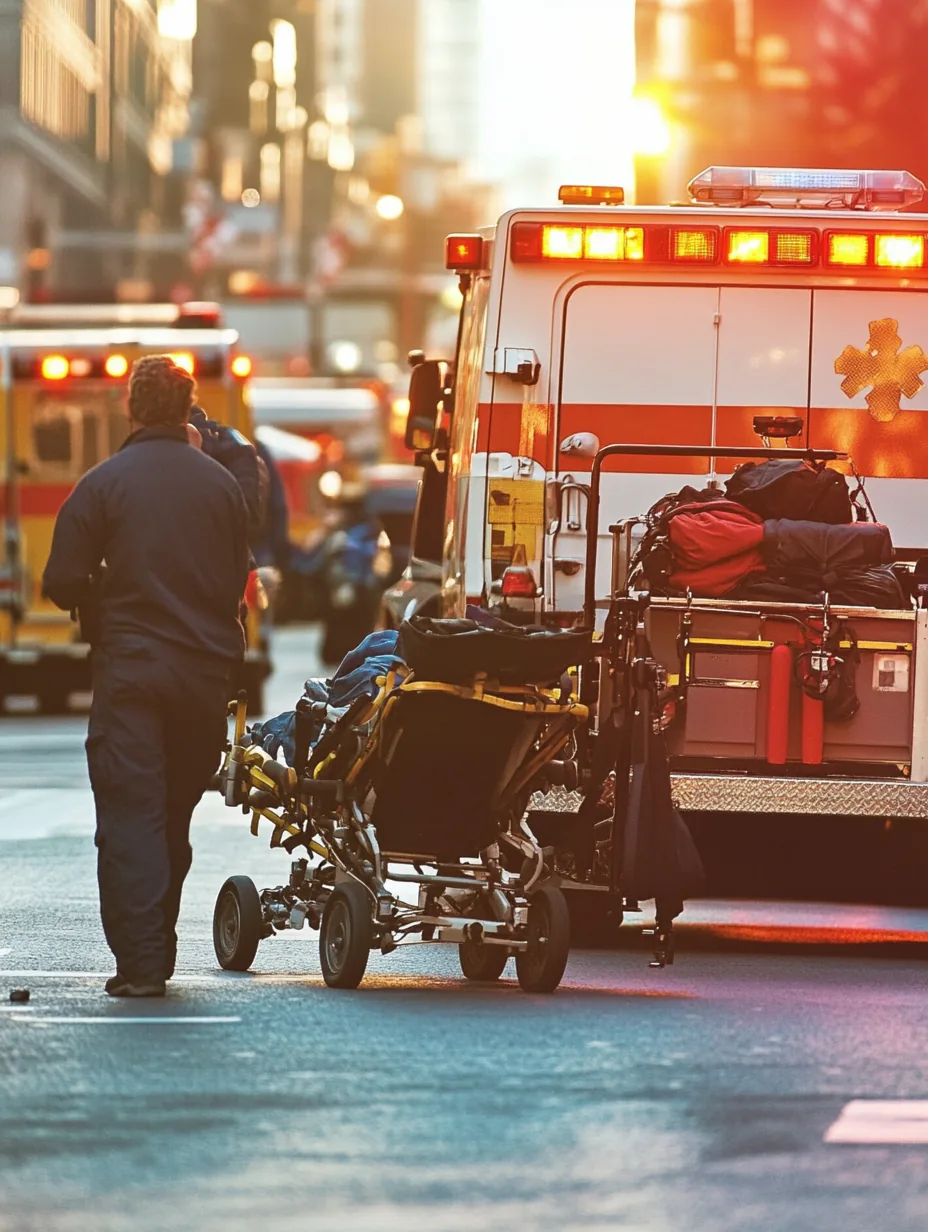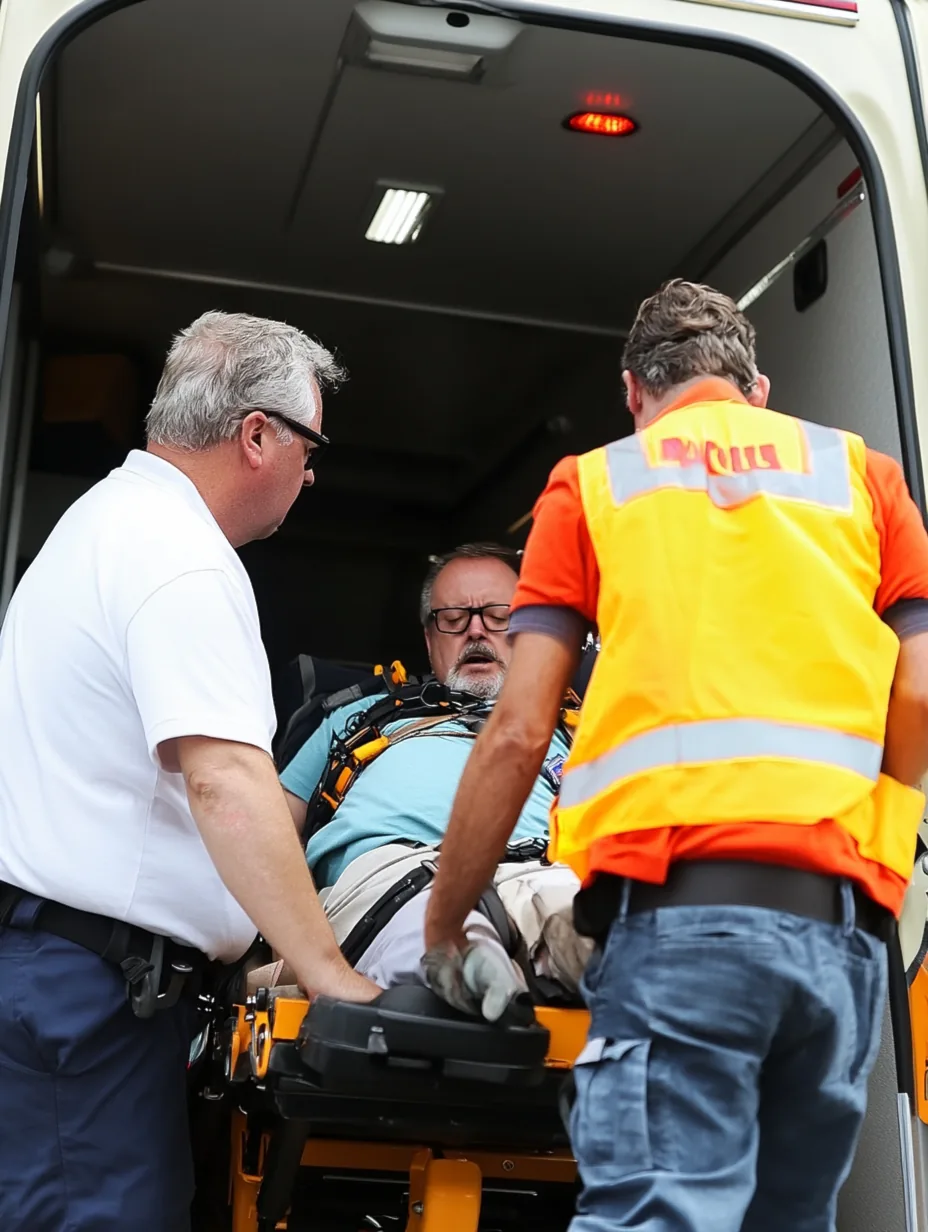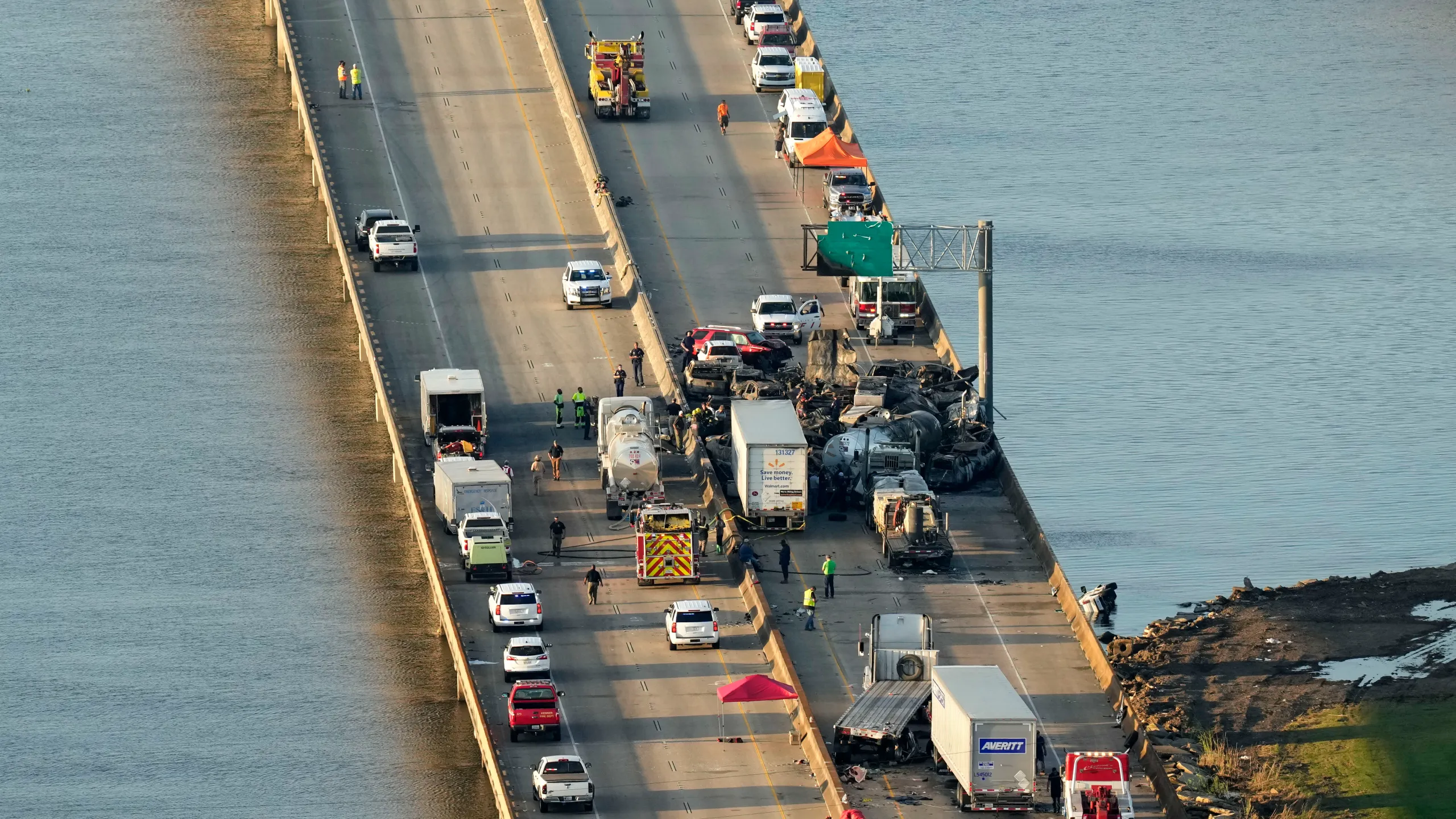Atlanta Catastrophic Injury Attorneys
A catastrophic injury can instantly alter the course of a person’s life, leaving victims and their families struggling with permanent disabilities, overwhelming medical expenses, and emotional trauma. In a fast-growing city like Atlanta, where heavy traffic, dangerous workplaces, and medical negligence can lead to devastating accidents, catastrophic injuries are far too common. Whether caused by a high-speed collision on I-285, a construction accident in Midtown, or a surgical error at a local hospital, these injuries demand immediate legal action to secure the compensation needed for lifelong care and financial stability.
At Karell Trial Attorneys, we are dedicated to fighting for the rights of catastrophic injury victims in Atlanta and throughout Georgia. We take on insurance companies, major corporations, hospitals, and negligent parties that try to avoid responsibility. Our aggressive legal approach ensures that victims receive full compensation for medical treatment, lost wages, long-term rehabilitation, and emotional suffering. If you or a loved one has suffered a catastrophic injury in Atlanta, don’t face this battle alone. We offer free consultations and work on a contingency fee basis—you pay nothing unless we win your case. Call today to get the justice and compensation you deserve.
Recent Results
$675,000
REAR END COLLISION
$225,000
TRIP AND FALL
$300,000
ATV ACCIDENT
$200,000
RIDESHARE COLLISION
$300,000
TOW TRUCK COLLISION
$500,000
GARBAGE TRUCK COLLISION
How Hiring Karell Trial Lawyers Can Make the Difference in Your Catastrophic Injury Claim
A catastrophic injury is more than just a legal case—it’s a fight for survival, stability, and dignity. When victims suffer life-changing injuries, they are thrust into a world of uncertain futures, mounting medical bills, and aggressive insurance tactics designed to minimize their compensation. In these moments, having a law firm that truly understands the stakes can be the difference between securing a lifetime of care and struggling to stay afloat.
At Karell Trial Attorneys, we approach catastrophic injury cases not just as legal battles but as personal missions. We know that behind every case file is a human being fighting to reclaim their life—and we will not rest until they receive the justice and compensation they deserve. Our dedicated legal team ensures that no stone is left unturned, no argument goes unchallenged, and no victim is left to suffer at the hands of insurance companies.
Detailed Investigations into the Cause of Your Injury
A successful catastrophic injury claim hinges on proving liability—establishing exactly who caused your injury and how their negligence resulted in your suffering. Insurance companies thrive on uncertainty and ambiguity, so our job is to ensure there is no room for doubt in your claim.
We go far beyond basic accident reports—we launch independent investigations to uncover every contributing factor to your injury. Our legal team:
- Obtains critical evidence – We secure surveillance footage, traffic camera recordings, black box data (for truck accidents), and maintenance logs to establish a clear timeline of events.
- Works with accident reconstruction specialists – Our experts recreate the crash or incident using advanced modeling to determine the exact forces at play and who was responsible.
- Consults forensic analysts – We use forensic evidence, blood tests, and toxicology reports to detect intoxication, fatigue, or mechanical failure that may have contributed to the incident.
- Interviews witnesses and first responders – Witnesses can provide key details that contradict insurance company narratives—we work tirelessly to secure statements that support your case.
- Analyzes employer records (for workplace accidents) – In workplace injury claims, we investigate whether safety violations, lack of training, or defective equipment played a role in the incident.
By building a bulletproof case from the ground up, we ensure that insurance companies and at-fault parties have no room to deny their responsibility.
Building a Strong Case for Maximum Compensation
Catastrophic injuries don’t just impact victims in the present—they redefine their entire future. A person who once worked, traveled, and lived independently may now face years of medical procedures, lost income, and emotional distress. Unlike minor personal injury cases, catastrophic injury claims require a strategic approach to calculating damages, ensuring that victims receive compensation that accounts for their lifetime needs.
At Karell Trial Attorneys, we fight not just for what’s immediately in front of you, but for every hardship and financial burden you will face in the future. We demand compensation for:
Immediate and Ongoing Medical Care
Catastrophic injuries often require multiple surgeries, rehabilitation, and permanent medical intervention. We secure compensation for:
- Emergency room care, ICU stays, and life-saving surgeries
- Physical therapy and rehabilitation programs
- Medications, assistive devices (wheelchairs, prosthetics, braces, etc.), and home nursing care
- Psychological therapy and counseling for trauma, PTSD, and depression
Lost Wages and Future Earning Potential
For many catastrophic injury victims, returning to work may not be an option. We work with economic experts and vocational rehabilitation specialists to determine:
- Lost wages from time off work
- Reduced earning potential if the victim is unable to return to their previous profession
- Lifetime loss of income if the injury prevents any form of employment
We ensure that every dollar lost in future wages is accounted for in your claim.
Home and Vehicle Modifications for Long-Term Disability
Many catastrophic injury victims must modify their homes and vehicles to accommodate new physical limitations. Compensation may include:
- Wheelchair ramps, widened doorways, and accessible bathrooms
- Modified vehicles with hand controls or wheelchair lifts
- Adaptive technology for communication and daily living needs
Pain and Suffering – Beyond the Physical Injuries
Catastrophic injuries don’t just impact physical health, they take a toll on mental well-being, independence, and quality of life. Victims experience:
- Emotional trauma, anxiety, and depression
- Loss of enjoyment of life due to permanent disabilities
- Strain on personal relationships and family dynamics
Insurance companies often try to downplay these damages, but we fight to ensure full recognition of your suffering in your compensation package.
Punitive Damages – Holding Negligent Parties Accountable
In cases where catastrophic injuries were caused by reckless or intentional misconduct—such as drunk driving, gross medical negligence, or safety violations—we pursue punitive damages to hold the at-fault party accountable. These damages serve to punish egregious wrongdoing and prevent similar negligence from happening to others.
Bilingual Law Firm – Advocating for the Severely Injured
Catastrophic injuries impact individuals and families from all backgrounds, and language barriers should never stand in the way of justice. At Karell Trial Attorneys, we are proud to be a bilingual law firm, providing expert legal representation in both English and Spanish. Every client deserves to feel heard, understood, and empowered throughout their legal journey, regardless of the language they speak.
For many Spanish-speaking individuals, dealing with insurance companies, medical providers, and legal documents can be overwhelming—especially after suffering a life-altering injury. We ensure that nothing is lost in translation, allowing our clients to communicate their concerns fully and understand their rights without confusion. From consultations to courtroom representation, our bilingual legal team provides clear guidance, detailed explanations, and unwavering advocacy.
If you or a loved one has suffered a catastrophic injury and prefers to speak in Spanish, we are here to help. Our firm ensures that every step of the legal process is accessible, transparent, and tailored to your needs. Todos merecen justicia. Luchamos por usted.
24/7 Support – Free Consultations
A catastrophic injury doesn’t wait for business hours, and neither do we. At Karell Trial Attorneys, we understand that serious accidents can happen at any time, leaving victims and their families desperate for answers and legal guidance. That’s why we offer 24/7 case evaluations, ensuring that you have access to immediate legal support—whenever you need it most.
When facing life-changing injuries, time is critical. Evidence can disappear, witnesses’ memories can fade, and insurance companies may try to pressure you into accepting a low settlement. Our dedicated legal team is available day or night, ready to take your call, answer your questions, and start building your case.
You don’t have to wait to get the help you need. Call us anytime, 24/7, for a free consultation. We’re here when you need us the most.
What is a Catastrophic Injury?
A catastrophic injury is one that results in permanent disability, long-term impairment, or significant medical intervention. These injuries often prevent victims from working, living independently, or maintaining their previous quality of life.
Examples of catastrophic injuries include:
- Spinal cord injuries resulting in paralysis
- Traumatic brain injuries (TBIs) that impact cognitive function
- Severe burns requiring multiple surgeries and skin grafts
- Amputations that permanently change mobility
- Crush injuries that lead to organ failure or disability
These injuries require extensive medical care, and without full compensation, victims may face financial ruin due to long-term treatment needs.
Common Causes of Catastrophic Injuries
Catastrophic injuries can happen anywhere, but certain types of accidents are more likely to cause life-altering harm.
- Car Accidents – High-speed crashes, truck accidents, and head-on collisions often result in catastrophic injuries.
- Workplace Incidents – Construction accidents, industrial machinery failures, and falls from heights can lead to permanent disabilities.
- Defective Products – Malfunctioning medical devices, defective auto parts, and dangerous consumer products can cause life-changing injuries.
- Medical Malpractice – Surgical errors, misdiagnoses, and birth injuries can leave victims permanently disabled.
- Slip and Fall Accidents – Falls from unsafe scaffolding, ladders, or slippery surfaces can lead to brain or spinal cord injuries.
In every case, holding the party responsible is crucial to securing the compensation needed for long-term care.
Types of Catastrophic Injuries
Catastrophic injuries are life-altering, often leaving victims with permanent disabilities, chronic pain, and significant emotional and financial burdens. These injuries require extensive medical treatment, long-term rehabilitation, and, in many cases, permanent assistive care. Understanding the nature and impact of catastrophic injuries is crucial when seeking full compensation for ongoing medical expenses, lost wages, and diminished quality of life. Below are some of the most devastating injuries individuals can suffer due to severe accidents, medical malpractice, or workplace incidents.
Traumatic Brain Injuries (TBI)
A traumatic brain injury (TBI) is one of the most complex and serious injuries a person can sustain. TBIs range from mild concussions to severe brain damage, affecting cognitive function, speech, mobility, emotional well-being, and overall quality of life. Even with immediate medical intervention, many TBI victims experience long-term or permanent disabilities that prevent them from returning to work or living independently.
Common Causes of TBIs:
- High-impact car accidents, including head-on collisions and trucking accidents
- Slips and falls, especially from significant heights
- Blunt force trauma from falling objects or workplace accidents
- Explosions or violent physical altercations
- Medical negligence during surgery or childbirth, leading to oxygen deprivation injuries
TBI victims often require intensive rehabilitation, including physical therapy, cognitive therapy, and psychiatric care, making compensation for long-term medical costs and lost earning capacity essential.
Spinal Cord Injuries (SCI) and Paralysis
A spinal cord injury (SCI) can be devastating, as it affects the body's ability to send messages between the brain and limbs, often resulting in partial or total paralysis. The impact of an SCI depends on the location and severity of the injury, with higher spinal injuries (C1-C4) leading to quadriplegia and lower spinal injuries affecting mobility below the waist (paraplegia).
Common Causes of Spinal Cord Injuries:
- Motor vehicle accidents (leading cause of SCIs)
- Falls from construction sites, scaffolding, or ladders
- Workplace injuries involving heavy machinery or industrial accidents
- Sports injuries, diving accidents, and high-impact trauma
- Medical malpractice, including surgical errors or misdiagnosed spinal conditions
SCI victims often need lifelong medical care, assistive devices (wheelchairs, braces), and home modifications to adapt to their new reality. Compensation must account for future expenses, including rehabilitation, in-home nursing care, and lost income.
Amputations and Loss of Limbs
Losing a limb is one of the most traumatic and physically demanding injuries a person can experience. Whether due to severe crush injuries, medical negligence, or surgical complications, amputations require extensive rehabilitation, prosthetic fittings, and long-term physical therapy.
Common Causes of Amputations:
- Severe car accidents leading to irreparable limb damage
- Workplace accidents involving heavy machinery, saws, or industrial presses
- Medical complications from untreated infections or diabetes-related conditions
- Explosions or electrical accidents, often in construction or military settings
Victims who lose a limb due to someone else’s negligence must be fully compensated for their lifetime medical costs, rehabilitation, and emotional distress.
Severe Burns
Burn injuries are among the most painful and life-altering catastrophic injuries, often leading to permanent scarring, nerve damage, and organ failure. Third-degree burns can destroy skin, muscle, and even bone, requiring extensive reconstructive surgery and skin grafts. Many victims face psychological trauma, social stigma, and chronic pain.
Common Causes of Severe Burns:
- Explosions or fires in workplace accidents, gas leaks, or vehicle crashes
- Electrical burns from faulty wiring, industrial accidents, or power line exposure
- Chemical burns from dangerous substances in factories, labs, or construction sites
- Medical malpractice during procedures like laser treatments or radiation therapy
Burn victims may require dozens of surgeries, skin grafting procedures, and ongoing physical therapy, making a high-value settlement essential to cover medical and psychological rehabilitation costs.
Gone Through Hell?
Call Karell
The congested streets of Atlanta create a hazardous environment where catastrophic injuries are a grim reality for many involved in accidents. Cyclists, in particular, face exceptional risks as they share road space with larger, faster-moving vehicles. Without the protection afforded by cars, bicyclists involved in collisions often suffer life-altering injuries, such as spinal cord trauma, traumatic brain injuries, or permanent disabilities. These catastrophic injuries not only bring immense physical pain but also lead to long-term challenges, including costly medical treatments, rehabilitation, loss of mobility, and an inability to return to work. Factors like distracted driving, poorly marked bike lanes, and a lack of respect for cyclists’ rights on the road play significant roles in these devastating outcomes. Preventing such injuries requires a united effort from both drivers and cyclists, coupled with improvements in infrastructure, to ensure safer streets for all.

Practice Areas
Who Can Be Held Liable for a Catastrophic Injury?
Catastrophic injuries often result in permanent disabilities, long-term medical care, and financial devastation for victims and their families. Determining who is liable for these injuries is crucial in obtaining the compensation needed to cover medical bills, lost wages, rehabilitation, and pain and suffering. In many cases, multiple parties may share responsibility, making these cases complex and requiring detailed investigation and aggressive legal representation.
Liability for catastrophic injuries is generally based on negligence, which means proving that another party’s recklessness, carelessness, or failure to act directly caused the injury. Below, we break down the most common scenarios in which liability may be established, ensuring that victims pursue claims against the right parties for maximum compensation.
Liability in Negligence-Based Cases
Many catastrophic injury cases involve negligence, where an individual or entity fails to uphold a legal duty of care, leading to severe harm. Some of the most common negligent parties in catastrophic injury cases include:
Reckless Drivers
Motor vehicle accidents are among the leading causes of catastrophic injuries, including traumatic brain injuries, spinal cord damage, amputations, and severe burns. A driver may be held fully or partially liable if their actions lead to a serious crash.
Examples of Driver Negligence Leading to Catastrophic Injuries:
- Speeding and reckless driving – High-speed collisions often result in devastating injuries, particularly in head-on crashes and rollover accidents.
- Drunk or drug-impaired driving – Drivers under the influence have slowed reaction times, impaired judgment, and reduced coordination, making accidents far more likely.
- Distracted driving – Using a phone, eating, or adjusting in-car systems can lead to fatal or life-altering crashes.
- Drowsy driving – Fatigue can impair a driver’s ability to react in time, leading to severe crashes, particularly involving commercial truck drivers.
- Failure to obey traffic laws – Running red lights, failing to yield, and improper lane changes increase the risk of catastrophic collisions.
Victims of reckless drivers may file a personal injury lawsuit against the at-fault driver, and their insurance provider may be responsible for covering damages such as medical expenses, lost wages, and rehabilitation costs.
Employers (Workplace Accidents and Construction Injuries)
Many catastrophic injuries occur in the workplace, particularly in high-risk industries like construction, manufacturing, and transportation. Employers have a legal duty to maintain safe work environments, and failing to do so can result in serious liability.
Common Causes of Workplace Catastrophic Injuries:
- Falls from heights – Workers on scaffolding, ladders, or rooftops can suffer paralysis, brain injuries, or fractures if proper fall protection is not provided.
- Defective machinery – Malfunctioning equipment can cause crush injuries, amputations, and severe burns.
- Exposure to toxic substances – Industrial workers exposed to hazardous chemicals, fumes, or asbestos may suffer permanent organ damage.
- Vehicle and equipment accidents – Forklift accidents, crane malfunctions, and construction truck collisions often cause life-threatening injuries.
Victims may be eligible for workers’ compensation benefits, but in cases where negligence by a third party (such as an equipment manufacturer) contributed to the injury, additional claims can be pursued.
Property Owners (Premises Liability Cases)
Under premises liability laws, property owners have a legal responsibility to maintain safe conditions for visitors. If a person suffers a catastrophic injury due to a hazardous condition on someone else’s property, the owner or manager may be held liable.
Common Causes of Premises-Related Catastrophic Injuries:
- Slip and fall accidents – Wet floors, uneven pavement, or poorly maintained staircases can lead to severe head trauma or spinal injuries.
- Inadequate security – If poor lighting, lack of security personnel, or broken locks contribute to an assault or violent incident, the property owner may be responsible.
- Unsafe swimming pools – Drownings or diving accidents in unfenced, poorly maintained, or unmarked deep-water pools can cause brain injuries or paralysis.
- Falling objects – Unsecured shelving, loose construction materials, or poorly maintained buildings can lead to crush injuries or fatalities.
Property owners must address known hazards and warn visitors of dangers. If they fail to do so, they can be held liable for injuries that occur on their premises.
Liability for Defective Products
When a product fails due to design flaws, poor manufacturing, or lack of proper warnings, the manufacturer, distributor, or retailer can be held liable under product liability laws. Defective products can cause life-threatening injuries, often without warning.
Examples of Defective Products That Lead to Catastrophic Injuries:
- Defective vehicles and auto parts – Faulty brakes, airbag failures, or tire blowouts can lead to deadly car accidents.
- Unsafe industrial equipment – Faulty machinery can cause limb amputations, burns, or electrical injuries.
- Dangerous consumer products – Household appliances, toys, or tools with defective wiring or poor design can result in serious burns or electrocution.
- Harmful medical devices or pharmaceuticals – Defective pacemakers, hip implants, or recalled drugs can cause life-threatening complications.
Manufacturers can be held liable if they:
- Designed a product that was inherently dangerous
- Failed to provide adequate safety warnings or instructions
- Sold a product with manufacturing defects that made it unsafe
Victims may file a product liability lawsuit to recover medical expenses, lost income, and pain and suffering caused by a faulty product.
Liability in Medical Malpractice Cases
When doctors, nurses, or healthcare facilities fail to meet the standard of care, patients can suffer irreversible harm or death. Medical malpractice cases often involve catastrophic injuries due to negligence, requiring extensive evidence and expert testimony.
Common Types of Medical Malpractice Leading to Catastrophic Injuries:
- Surgical errors – Botched procedures, incorrect incisions, or leaving surgical instruments inside the body can cause permanent organ damage.
- Misdiagnoses or delayed diagnoses – Failing to diagnose cancer, strokes, or infections in time can lead to severe complications or death.
- Birth injuries – Errors during delivery, such as failure to monitor oxygen levels, can result in cerebral palsy, brain damage, or paralysis.
- Medication errors – Administering the wrong medication, incorrect dosages, or allergic reactions can result in fatal complications.
- Anesthesia errors – Improper administration of anesthesia can cause brain damage, heart failure, or coma.
Hospitals, physicians, and pharmaceutical companies may be held liable in medical malpractice lawsuits, allowing victims to seek substantial compensation for lifelong care, lost income, and pain and suffering.
Why Determining Liability Matters in a Catastrophic Injury Case
Holding the right parties accountable is essential for maximizing compensation in a catastrophic injury case. Whether caused by a reckless driver, negligent employer, careless doctor, or defective product, victims deserve full compensation to cover medical expenses, future care, and emotional suffering.
At Karell Trial Attorneys, we conduct thorough investigations, gathering evidence, expert testimony, and accident reports to build a strong case for our clients. If you or a loved one has suffered a catastrophic injury, don’t wait to take legal action—contact us today for a free consultation and let us fight for the justice you deserve.
Types of Compensation Available in a Catastrophic Injury Claim
Catastrophic injuries often result in permanent disabilities, long-term medical needs, and significant financial hardships for victims and their families. Unlike minor injuries that heal over time, catastrophic injuries require lifelong care, adaptive equipment, and major lifestyle adjustments. The costs associated with these injuries can be overwhelming, which is why securing full compensation is crucial to ensure victims receive the support they need.
Victims of catastrophic injuries are entitled to various types of compensation, covering economic and non-economic damages, and in some cases, punitive damages when negligence is extreme. Below is a detailed breakdown of all the compensation available in a catastrophic injury claim and why each category matters in securing a stable future for the injured and their loved ones.
Economic Damages – Covering Tangible Financial Losses
Economic damages compensate for measurable financial losses resulting from a catastrophic injury. These include medical expenses, lost wages, and long-term care costs, which can quickly reach millions of dollars over a lifetime.
Medical Expenses (Past, Present, and Future)
Catastrophic injuries require immediate emergency treatment and often lead to lifelong medical care. Medical expenses covered in a catastrophic injury claim include:
- Emergency medical care and hospitalization – Ambulance rides, ER visits, ICU stays, and immediate life-saving procedures
- Surgeries and medical procedures – Multiple surgeries, reconstructive procedures, and future corrective surgeries
- Rehabilitation and physical therapy – Occupational therapy, cognitive rehabilitation, and mobility training
- Medication and pain management – Prescription drugs, injections, and long-term treatments
- Assistive devices and home modifications – Wheelchairs, prosthetics, ramps, and vehicle adaptations for mobility
- In-home nursing care – If a victim requires around-the-clock care, compensation must cover ongoing medical assistance
A catastrophic injury may require millions of dollars in medical expenses over a lifetime, and without full compensation, victims and their families could face financial ruin trying to cover these costs.
Lost Wages and Future Loss of Earnings
Many catastrophic injury victims are never able to return to work in their previous capacity, if at all. Compensation must cover:
- Lost wages from time off work – Covering income lost immediately after the injury
- Loss of earning capacity – If a victim can no longer work at the same level due to permanent disability
- Loss of career advancement opportunities – If the injury prevents promotions, bonuses, or career progression
- Workplace retraining costs – If the victim must switch careers or acquire new job skills due to their limitations
If a victim is unable to work, their lifetime lost earnings could reach millions of dollars, making full financial recovery essential.
Long-Term Care and Disability Accommodations
Many catastrophic injury victims require permanent, ongoing medical care, including:
- Home nursing or assisted living facilities – If the victim cannot live independently
- Home modifications – Including wheelchair ramps, stair lifts, and accessible bathrooms
- Adaptive technology and medical equipment – Including voice-controlled devices, prosthetics, and motorized wheelchairs
- Specialized transportation needs – Including vehicle modifications for wheelchair access
These costs accumulate over decades, and insurance companies often try to undervalue long-term care needs.
Non-Economic Damages – Compensating for the Human Cost of Injury
Non-economic damages address the emotional, psychological, and personal losses suffered by victims of catastrophic injuries. While these damages do not have a fixed dollar amount, they are essential in recognizing the true impact of an injury on a person’s life. Unlike medical bills or lost wages, which have a clear financial value, non-economic damages compensate for pain, suffering, emotional trauma, and loss of quality of life.
Punitive Damages – Holding Negligent Parties Accountable
Punitive damages serve a different purpose than economic or non-economic damages. While the latter compensate for actual losses, punitive damages are meant to punish reckless behavior and discourage similar misconduct in the future. These damages are awarded in cases where the at-fault party acted with gross negligence, recklessness, or intentional misconduct, such as in drunk driving crashes, medical malpractice cases, or corporate negligence.
Punitive damages are often awarded in cases of extreme negligence, including drunk driving accidents where a driver knowingly operated a vehicle while intoxicated, endangering lives. Similarly, in medical malpractice cases, punitive damages may be awarded if a doctor or healthcare provider knowingly ignored serious health risks, leading to catastrophic harm. Defective product claims can also result in punitive damages if a manufacturer was aware of a dangerous flaw but continued to sell the product anyway. Additionally, employers who disregard safety regulations, leading to severe workplace injuries, may face punitive damages for their willful negligence.
These damages send a strong message that reckless behavior will not be tolerated. While not available in every case, punitive damages significantly increase the financial accountability of the negligent party and help ensure that victims receive the justice they deserve.
Why Hiring an Experienced Catastrophic Injury Attorney is Crucial
Insurance companies will aggressively fight against high-value catastrophic injury claims, often:
- Denying liability or shifting blame onto the victim
- Offering undervalued settlements that don’t cover future expenses
- Delaying claims, hoping victims become desperate
At Karell Trial Attorneys, we:
- Work with medical experts, economists, and life-care planners to calculate full compensation
- Negotiate aggressively with insurance companies to secure fair settlements
- Take cases to trial if necessary to ensure maximum financial recovery
If you or a loved one has suffered a catastrophic injury, don’t settle for less than you deserve. Contact Karell Trial Attorneys today for a free consultation and let us fight for the full compensation you need to rebuild your life.
How Compensation is Calculated in a Catastrophic Injury Case
Securing full and fair compensation for a catastrophic injury requires expert analysis, detailed financial projections, and a strong legal strategy. These cases are complex because the impact of the injury extends far beyond the immediate aftermath, affecting the victim’s long-term medical needs, earning capacity, and overall quality of life. Several factors determine the total value of a catastrophic injury claim, including:
- Severity of the injury – The more severe and permanent the injury, the higher the compensation.
- Lifetime medical costs – Compensation must account for future surgeries, physical therapy, in-home care, assistive devices, and rehabilitation.
- Lost income and career impact – Victims who can no longer work in their field or earn a living must be compensated for lost earning capacity.
- Emotional and psychological trauma – Pain, suffering, and the loss of independence or enjoyment of life must be factored into the claim.
- Comparative negligence – If the victim is found partially at fault, their compensation may be reduced under Georgia’s modified comparative negligence law.
Without the right legal representation, insurance companies may offer settlements that fail to account for these long-term needs. A catastrophic injury attorney ensures that victims receive the full amount necessary to secure their future.
How Long Do You Have to File a Catastrophic Injury Claim in Georgia?
Filing a catastrophic injury claim in Georgia is subject to strict legal deadlines known as the statute of limitations. Under Georgia law (O.C.G.A. § 9-3-33), victims generally have two years from the date of the injury to file a lawsuit against the responsible party. However, exceptions exist that may either shorten or extend this deadline, depending on the circumstances of the case.
Failing to file within the applicable timeframe can result in the case being dismissed, meaning the victim loses their right to seek compensation. Acting quickly ensures that evidence is preserved, witnesses remain available, and legal rights are fully protected.
Exceptions to the Two-Year Deadline
While the standard statute of limitations for catastrophic injury claims in Georgia is two years, certain exceptions may apply, either reducing or extending the time available to file a claim.
Claims Involving Government Liability (Shorter Deadlines)
If a government entity is responsible for the injury - such as in cases involving public transportation accidents, hazardous road conditions, or negligence by a government employee—the deadline to file a claim is significantly shorter:
- Claims against a city or county government – Must be filed within six months.
- Claims against the State of Georgia – Must be filed within one year.
Because lawsuits against government agencies require formal notice before filing a claim, victims must act immediately to avoid missing critical deadlines.
Cases Involving Minors (Extended Deadlines)
If the injury victim is under 18 years old, Georgia law pauses the statute of limitations until the minor turns 18. This means:
- The two-year filing period begins on the victim’s 18th birthday, rather than on the date of injury.
- Parents or guardians can file on the minor’s behalf at any time before they turn 18.
This rule ensures that minors are not unfairly barred from seeking justice due to their age. However, waiting too long can still result in weakened evidence and lost witness testimony, so filing as early as possible remains beneficial.
Catastrophic Injuries with Delayed Discovery
In some cases, the effects of a catastrophic injury may not be immediately apparent. For example:
- A traumatic brain injury (TBI) may worsen over time, revealing new impairments months or years later.
- Medical malpractice injuries may not be discovered until a patient experiences severe complications.
- Toxic exposure injuries (such as asbestos-related illnesses) may develop years after initial exposure.
In such cases, Georgia’s “discovery rule” may apply, allowing victims to file a claim within two years of the date they discovered—or reasonably should have discovered—the injury. However, this is a complex legal argument that requires strong evidence and expert testimony.
Why Filing Early is Critical in Catastrophic Injury Cases
Waiting too long to pursue a catastrophic injury claim can severely impact the outcome of a case. Filing early ensures:
- Key evidence is preserved – Accident scenes change, surveillance footage is erased, and records may be lost over time.
- Witnesses remain available – As time passes, witness memories fade, making testimony less reliable.
Stronger negotiation power – Filing promptly shows the insurance company that you are serious about your claim, increasing the likelihood of a fair settlement.
Financial relief arrives sooner – Many victims face crippling medical bills and lost wages. Filing early speeds up the process of securing compensation.
How an Attorney Helps Protect Your Right to File
Catastrophic injury cases require detailed investigations, expert evaluations, and extensive documentation. The legal process can be overwhelming, but an experienced catastrophic injury attorney ensures that:
- All deadlines are met, preventing the case from being dismissed.
- The claim is properly filed against the correct parties, including government entities or corporate defendants.
- Evidence is collected and preserved, strengthening the case for maximum compensation.
- Negotiations with insurance companies begin immediately, preventing delay tactics.
At Karell Trial Attorneys, we ensure that every legal requirement is met on time, giving our clients the best chance of securing the full compensation they deserve.
Challenges in Catastrophic Injury Cases
Catastrophic injury claims are among the most heavily contested cases in personal injury law. Because these injuries often result in permanent disabilities, loss of earning capacity, and the need for lifelong medical care, insurance companies and at-fault parties fight aggressively to minimize their financial liability. Victims often face delays, denied claims, and settlement offers far below what they actually need. Understanding these challenges is crucial to building a strong case and securing full compensation.
Catastrophic injury claims are among the most heavily contested cases in personal injury law. Because these injuries often result in permanent disabilities, loss of earning capacity, and the need for lifelong medical care, insurance companies and at-fault parties fight aggressively to minimize their financial liability. Victims often face delays, denied claims, and settlement offers far below what they actually need. Understanding these challenges is crucial to building a strong case and securing full compensation.
Disputing the Severity of Injuries
One of the most common tactics used by insurance companies is to question the seriousness of a victim’s injuries. They may claim:
- The injuries are not as severe as the victim alleges.
- The victim had pre-existing conditions that contributed to their current health problems.
- The victim is recovering better than expected and does not need further medical care.
To support these claims, insurers may require victims to undergo an independent medical examination (IME) with a doctor of their choosing. These doctors are often biased toward the insurance company and may downplay the extent of the victim’s disabilities. Without strong medical documentation and expert testimony, victims risk having their future medical needs undervalued or denied altogether.
Shifting Blame onto the Victim
Insurance companies frequently try to assign blame to the injured party to reduce or eliminate their financial responsibility. Under Georgia’s modified comparative negligence rule, if a victim is found 50 percent or more at fault, they are barred from recovering compensation. If they are found partially at fault but less than 50 percent, their compensation is reduced proportionally.
To shift blame, insurance companies may:
- Use witness statements and accident reports to suggest the victim was partially responsible
- Argue that the victim violated traffic laws or safety regulations
- Claim that the victim’s own negligence—such as distracted walking or failure to follow warnings—contributed to the injury
Fighting back against blame-shifting tactics requires strong evidence, accident reconstruction reports, and expert testimony. Victims should never assume that fault is clear-cut, as insurance companies will exploit any possible weakness to reduce their payout.
Offering Lowball Settlements
Victims of catastrophic injuries often face immediate financial pressure due to:
- Expensive medical treatments and surgeries
- Inability to return to work
- Ongoing rehabilitation and home modifications
Insurance companies take advantage of this financial strain by offering quick, low-value settlements that do not reflect the true cost of the victim’s long-term needs. These early settlement offers often fail to account for future surgeries, in-home care, loss of future earnings, and ongoing pain and suffering.
Victims who accept these settlements waive their right to seek further compensation, even if their condition worsens over time. A skilled catastrophic injury attorney can negotiate aggressively to ensure victims do not accept an offer that is far below what they need and deserve.
Delaying the Claims Process
Another common strategy insurance companies use is delaying the claims process, hoping that victims become desperate enough to settle for less. Delays can come in the form of:
- Requesting unnecessary documentation to slow down negotiations
- Failing to respond to claims in a timely manner
- Dragging out settlement discussions in hopes that financial strain forces the victim into accepting a lower offer
These delays can be especially damaging for catastrophic injury victims who rely on settlements to pay for immediate and long-term medical care. A personal injury attorney can hold insurance companies accountable by enforcing legal deadlines and taking the case to trial if necessary.
How Karell Trial Attorneys Fights Back Against Insurance Company Tactics
At Karell Trial Attorneys, we know the strategies insurance companies use to limit payouts, and we fight back aggressively to secure maximum compensation for catastrophic injury victims. Our legal team:
- Works with medical experts and life-care planners to establish the full extent of injuries and long-term care needs
- Gathers accident reconstruction reports and expert testimony to counter false claims of shared fault
- Negotiates directly with insurance adjusters to demand full compensation for medical expenses, lost wages, and pain and suffering
- Takes cases to trial if necessary to ensure our clients are not forced into accepting lowball settlements
If you or a loved one is facing challenges in a catastrophic injury case, do not navigate the legal battle alone. Contact Karell Trial Attorneys today for a free consultation and let us fight for the compensation you deserve.
Awards & Certifications




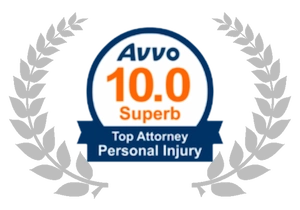
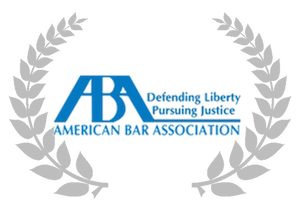
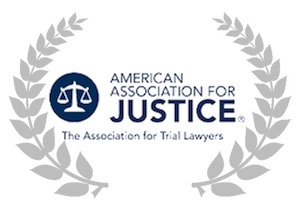


How Insurance Companies Handle Catastrophic Injury Claims
When dealing with high-value catastrophic injury claims, insurance companies prioritize their profits over the well-being of victims. Because catastrophic injuries often involve permanent disabilities, long-term medical care, and loss of future earnings, insurers face significant financial exposure when paying out these claims. To minimize their losses, they employ aggressive tactics aimed at reducing or denying compensation to victims. Understanding these strategies is crucial for anyone pursuing a claim to ensure they do not fall victim to unfair practices.
Disputing the Severity of Injuries
One of the most common tactics insurance companies use is challenging the severity of the victim’s injuries. By doing so, they attempt to justify lower settlement offers or outright denial of claims.
- Insurers may argue that the victim’s injuries are not as severe as claimed, despite medical evidence proving otherwise.
- They often request additional medical evaluations with doctors chosen by the insurance company, who may downplay the long-term impact of the injuries or claim that the victim is improving.
- Adjusters challenge the necessity of ongoing treatment or future surgeries, aiming to reduce compensation for long-term care, rehabilitation, and medical devices.
By undermining medical diagnoses and discrediting long-term care recommendations, insurance companies attempt to pay out the least amount possible, leaving victims without the financial resources necessary for their recovery.
Shifting Blame to the Victim
Insurance companies frequently try to shift blame onto the injured party to reduce or eliminate their financial responsibility. Under Georgia’s modified comparative negligence rule, a victim cannot recover damages if they are found to be 50% or more at fault for the accident. If they are found to be partially at fault but under 50%, their compensation is reduced proportionally.
- Insurers exploit this law by attempting to place as much fault as possible on the victim, even if their actions played little to no role in the accident.
- They may twist witness statements, highlight minor mistakes, or exaggerate the victim’s actions to suggest reckless behavior.
- Traffic reports, surveillance footage, and accident reconstructions may be selectively used to shift blame away from the at-fault party.
By manipulating the evidence, insurance companies attempt to lower their payout or deny the claim entirely. Without legal representation, victims may struggle to defend themselves against these accusations and end up receiving far less than they deserve.
Delaying the Claim Process
Another common strategy used by insurers is delaying the claim process, forcing victims into financial distress and pressuring them to accept lowball settlements.
- Insurers may stall negotiations, hoping that victims, facing overwhelming medical bills and lost wages, become desperate enough to accept a reduced payout.
- They may request excessive documentation beyond what is necessary, drawing out the process and frustrating claimants.
- Some insurers may even ignore communication or take weeks to respond, making it difficult for victims to move forward with their claim.
For victims suffering from catastrophic injuries, these delays can be devastating. Without immediate financial support, they may struggle to pay for medical care, rent, and essential living expenses. A skilled catastrophic injury attorney can hold insurance companies accountable and ensure that they do not delay claims unfairly.
Offering Quick, Lowball Settlements
Insurance companies often offer quick settlements that are far below what the victim actually needs. This tactic is designed to limit their financial liability before the full extent of the injuries is understood.
- They take advantage of victims’ financial distress, knowing that medical expenses and lost income make them eager to accept any compensation offered.
- Early settlement offers typically fail to account for future expenses, such as additional surgeries, rehabilitation, home modifications, and long-term in-home care.
- Once a settlement is accepted, victims cannot pursue additional compensation, meaning they may run out of money years later with no legal recourse.
Victims of catastrophic injuries should never accept a settlement offer without consulting an attorney. A legal professional can accurately assess the long-term financial impact of the injury and ensure that any settlement offer fully covers future expenses.
Using Surveillance and Social Media to Discredit Victims
Insurance companies go to great lengths to discredit victims, and one of their most underhanded tactics is conducting surveillance and monitoring social media activity to find any evidence that could be used against a claimant.
- Private investigators may be hired to follow victims, looking for any activity that contradicts their injury claims.
- Insurers analyze social media accounts, searching for photos, videos, or posts that suggest the victim is more physically capable than they claim.
- Even innocent activities, such as smiling in a family photo or attending a social gathering, can be used against a victim to argue that their pain and suffering is exaggerated.
Victims should avoid posting anything related to their injuries, lifestyle, or daily activities online while their case is ongoing. Even posts that seem unrelated can be twisted to undermine a claim.
How to Protect Yourself Against Insurance Company Tactics
Catastrophic injury victims must take proactive steps to ensure their claims are not unfairly reduced or denied. One of the most important actions is seeking immediate and ongoing medical treatment. Always follow doctors’ recommendations, attend all medical appointments, and comply with prescribed therapies to demonstrate the severity of the injury and the necessity of long-term care. Maintaining detailed records is also essential. Keep copies of medical bills, lost wage statements, rehabilitation costs, and any correspondence with the insurance company to ensure there is a clear record of expenses and damages.
Avoiding direct communication with insurance adjusters is another key protective measure. Anything a victim says can be used against them to minimize their claim, so it is always best to let an attorney handle negotiations. Additionally, victims should refrain from posting on social media, as even an innocent post or photo can be misinterpreted and used by the insurance company to dispute the extent of their injuries. Finally, hiring an experienced catastrophic injury attorney is critical to ensuring full and fair compensation. A legal professional can navigate complex claims, counter insurance company tactics, and advocate aggressively for the victim’s rights.
How Karell Trial Attorneys Fights Back Against Insurance Companies
At Karell Trial Attorneys, we know the tactics insurance companies use to avoid paying full compensation to catastrophic injury victims. Our legal team fights back by:
- Gathering expert medical testimony to prove the full extent of our client’s injuries.
- Securing accident reconstruction reports and witness statements to counter false claims of shared fault.
- Negotiating aggressively with insurance adjusters to demand fair compensation for medical expenses, lost wages, and pain and suffering.
- Taking cases to trial if necessary, ensuring that insurance companies do not get away with unjustly denying or underpaying claims.
If you or a loved one has suffered a catastrophic injury, do not let insurance companies dictate your future. Contact Karell Trial Attorneys today for a free consultation and let us fight for the compensation you rightfully deserve.
What to Expect During the Catastrophic Injury Lawsuit Process
A catastrophic injury lawsuit is often complex, time-consuming, and highly contested, but knowing what to expect can help victims and their families navigate the legal system with confidence. The process typically follows three key stages: investigation, negotiation, and litigation. Each phase is crucial in building a strong case and securing maximum compensation for medical expenses, lost wages, rehabilitation, and long-term care.
Investigation
The foundation of a successful catastrophic injury claim is a thorough investigation. This stage is critical in proving liability, documenting the severity of injuries, and calculating long-term damages. A well-prepared case forces insurance companies to take the claim seriously and strengthens the victim’s chances of securing full compensation.
During the investigation phase, our legal team will:
- Collect medical records and expert testimony – Detailed documentation from doctors, specialists, and rehabilitation experts proves the severity of injuries and long-term impact.
- Obtain witness statements – Testimonies from bystanders, first responders, and expert witnesses help establish how the accident occurred and who was responsible.
- Review accident reports and police documentation – Official reports provide critical details regarding fault, traffic violations, or safety hazards.
- Secure video footage and photographic evidence – Surveillance footage, dashcam videos, and scene photos can provide indisputable proof of negligence.
- Reconstruct the accident if necessary – Using forensic experts and accident reconstruction specialists, we can analyze the mechanics of the crash to support liability claims.
A strong investigation ensures that all relevant evidence is preserved and used strategically in negotiations or trial. Without proper documentation, insurance companies may deny claims or dispute the extent of damages.
Negotiation
Once we have built a solid case, the next step is negotiating with the insurance company. Most catastrophic injury claims settle outside of court, but only if the insurance company offers fair compensation that fully accounts for:
- Current and future medical expenses
- Lost wages and diminished earning capacity
- Pain, suffering, and emotional distress
- Rehabilitation, home modifications, and assistive devices
During negotiations, insurance companies often use tactics to minimize payouts, including:
- Questioning the severity of injuries to reduce compensation.
- Delaying responses to pressure victims into accepting lower settlements.
- Blaming the victim to argue for reduced liability under Georgia’s comparative negligence law.
- Offering a quick but inadequate settlement before long-term costs are fully understood.
At Karell Trial Attorneys, we anticipate these tactics and negotiate aggressively on behalf of our clients. We present strong medical evidence, expert testimony, and economic calculations to demand full and fair compensation. If the insurance company refuses to offer a reasonable settlement, we move to litigation.
Litigation
If negotiations fail to result in a fair settlement, the case proceeds to litigation, where we file a lawsuit and prepare for trial. While many cases settle before reaching the courtroom, insurance companies often offer higher settlements once they see we are fully prepared to go to trial.
The litigation process involves several steps:
- Filing the lawsuit – A formal complaint is filed in court, detailing the victim’s injuries, the defendant’s negligence, and the damages being sought.
- Discovery phase – Both sides exchange evidence, conduct depositions, and submit expert reports to support their claims.
- Pre-trial motions and hearings – Attorneys argue over legal issues, such as admissibility of evidence and whether the case should proceed to trial.
- Trial preparation – We work with medical professionals, economists, and accident reconstructionists to present a compelling case.
- Jury trial (if necessary) – If no settlement is reached, the case goes before a jury, where witnesses testify, evidence is presented, and legal arguments are made.
- Verdict and compensation – If successful, the court awards compensation based on the damages proven at trial.
At Karell Trial Attorneys, we prepare every case as if it will go to trial. This puts pressure on insurance companies to settle fairly and ensures that our clients receive the maximum compensation they deserve.
Get Karell Trial Attorneys on Your Side – Schedule Your Free Consultation and Start Your Recovery
Suffering a catastrophic injury can leave you facing overwhelming medical bills, lost wages, and an uncertain future. The physical, emotional, and financial toll of a life-altering injury can be devastating, making it essential to have experienced legal representation to fight for the compensation you need. At Karell Trial Attorneys, we understand the stakes. Our legal team is dedicated to securing justice for catastrophic injury victims, ensuring they receive full compensation for medical care, rehabilitation, long-term support, and financial stability. We take on insurance companies, negligent corporations, and reckless individuals, holding them fully accountable for the harm they’ve caused.
When you hire Karell Trial Attorneys, you choose a firm that will stand by your side every step of the way. From the moment you contact us, we launch a comprehensive investigation, consult with top medical and financial experts, and aggressively negotiate on your behalf. If the insurance company refuses to offer a fair settlement, we are fully prepared to take your case to trial and fight for the maximum compensation you deserve. You do not have to navigate this difficult time alone. Schedule your free consultation today by calling (678) 999-3331 or visiting our contact page and let us help you begin the path to recovery. We don’t get paid unless we win—so there’s no risk in getting the justice you deserve.
Get in Touch
Free Consultation
Fields Marked With An “*” Are Required

 (678) 999-3331
(678) 999-3331
